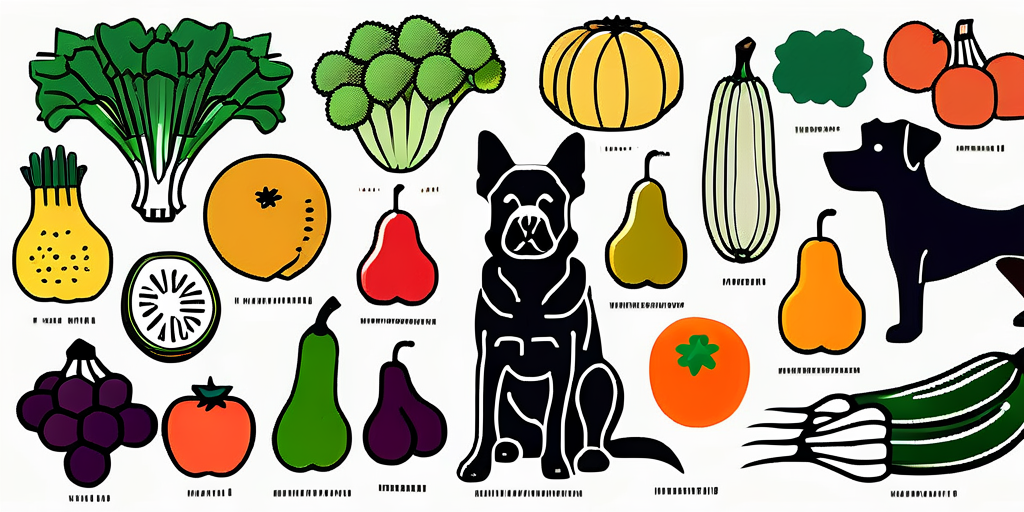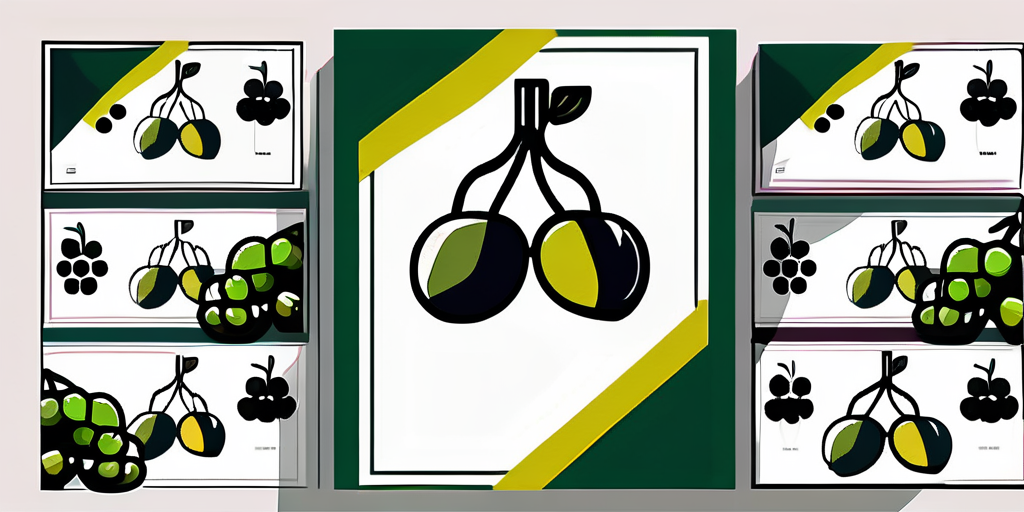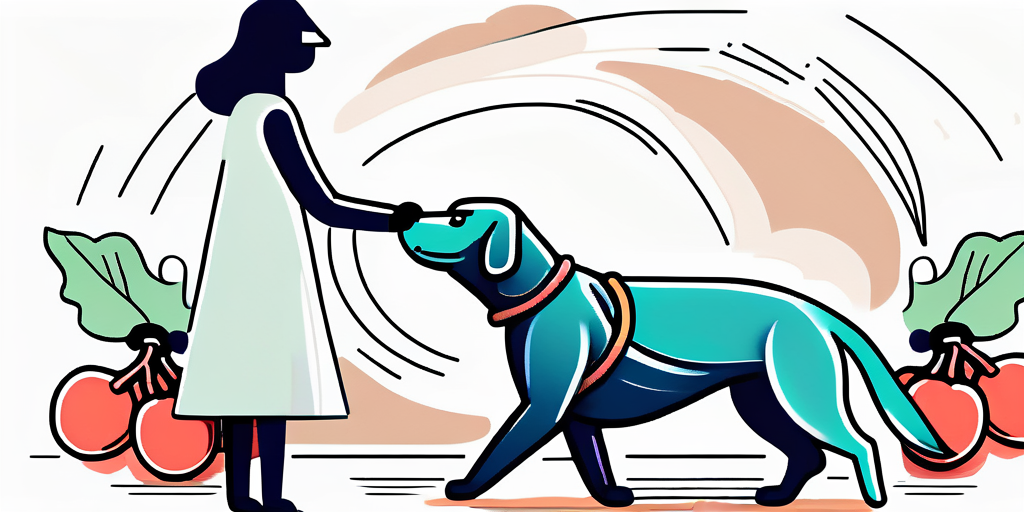Dogs are known for their curious nature, often sniffing out and gobbling up any food that crosses their path. As responsible pet owners, it is crucial to be aware of the foods that can be harmful to our furry friends. One food that frequently raises questions and concerns is grapes, a popular fruit enjoyed by humans. In this article, we will explore whether dogs can safely consume grapes and the potential risks associated with this seemingly innocent treat.
Understanding the Dietary Needs of Dogs
Before we delve into the topic of grapes and dogs, it is essential to understand the dietary needs of our canine companions. Dogs, like humans, require a well-balanced diet that includes essential nutrients to support their overall health and well-being.

Just like us, dogs need a combination of proteins, carbohydrates, fats, vitamins, and minerals in their diet. These nutrients play vital roles in supporting various bodily functions, including growth, energy production, and immune system function. Proteins are necessary for building and repairing tissues, while carbohydrates provide energy for daily activities. Fats, on the other hand, are essential for maintaining healthy skin and coat, as well as for absorbing certain vitamins. Vitamins and minerals are crucial for overall health, as they help regulate bodily processes and support the immune system.
Foods to Avoid for Dogs
While certain foods provide necessary nutrients for dogs, there are also several foods that can be potentially dangerous or even toxic to them. It is crucial to be aware of these foods to ensure the health and safety of our canine companions.
- Chocolate: Contains theobromine, which can be toxic to dogs. Even small amounts of chocolate can cause symptoms such as vomiting, diarrhea, rapid breathing, and increased heart rate. In severe cases, it can even lead to seizures and death.
- Onions and garlic: These common kitchen ingredients may add flavor to our meals, but they can cause damage to a dog’s red blood cells. This can lead to a condition called hemolytic anemia, which can be life-threatening if not treated promptly. Symptoms of onion or garlic toxicity in dogs include weakness, pale gums, and increased heart rate.
- Avocado: While avocados are a healthy snack for humans, they contain a substance called persin, which is toxic to dogs. Persin can cause stomach upset, breathing difficulties, and even heart failure in dogs. It is best to keep avocados out of your furry friend’s reach.
- Xylitol: This sugar substitute is commonly found in gum, candy, and other products. While it may be safe for humans, it can be deadly for dogs. Xylitol can cause a sudden release of insulin in dogs, leading to a dangerous drop in blood sugar levels. Symptoms of xylitol poisoning in dogs include vomiting, loss of coordination, and seizures.
By being aware of these potential hazards and ensuring that our dogs have a balanced and appropriate diet, we can help them live long, healthy lives. Remember, when in doubt about what foods are safe for your dog, it is always best to consult with your veterinarian.
Now that we have a good understanding of a dog’s dietary needs and the foods to avoid, let’s explore the topic of grapes and dogs in more detail.
The Truth About Dogs and Grapes
So, where do grapes fit in the list of foods to avoid for dogs? Grapes, along with their dried counterparts, raisins, have been a topic of concern among pet owners and veterinarians alike. Let’s take a closer look at the potential dangers grapes pose to our furry friends.
The Toxic Effects of Grapes on Dogs
It has been observed that grapes, regardless of their variety, can cause severe toxicity in dogs. The exact substance responsible for this toxicity remains unclear, but even a small amount of grapes or raisins can lead to detrimental effects in canines.
Why are Grapes Harmful to Dogs?
While the exact mechanism behind grape toxicity in dogs is still not fully understood, it is believed that grapes contain a toxic compound that can cause damage to a dog’s kidneys. This can result in acute renal failure, a potentially life-threatening condition.
One theory suggests that the toxic compound in grapes may be more concentrated in raisins due to the drying process. This could explain why raisins are even more dangerous to dogs than fresh grapes. However, it’s important to note that both grapes and raisins should be avoided altogether to ensure the safety of our furry companions.
Furthermore, it is worth mentioning that the toxic effects of grapes on dogs can vary depending on the individual dog’s size, breed, and overall health. Some dogs may show immediate signs of toxicity, such as vomiting, diarrhea, and abdominal pain, while others may not exhibit any symptoms until several days later. This unpredictability makes it even more crucial to err on the side of caution and avoid giving grapes or raisins to our beloved pets.
Recognizing Grape Poisoning in Dogs
When it comes to grape poisoning, early recognition is vital for the well-being of our pets. Understanding the symptoms associated with grape toxicity can help pet owners take immediate action.
Grapes may seem harmless, but they can be toxic to dogs. The exact substance in grapes that causes toxicity is still unknown, but it is important to be aware of the signs and symptoms to ensure the safety of our furry friends.
Symptoms of Grape Toxicity
The signs of grape poisoning can vary depending on the individual dog and the amount of grapes ingested. However, common symptoms to watch out for include:
- Vomiting and diarrhea: Grape toxicity can irritate your dog’s stomach, leading to episodes of vomiting and diarrhea. This can be a clear indication that something is wrong.
- Loss of appetite: If your dog suddenly loses interest in their food and shows a lack of appetite, it could be a sign of grape poisoning. Pay close attention to any changes in their eating habits.
- Abdominal pain: Dogs experiencing grape toxicity may exhibit signs of discomfort or pain in their abdomen. They may become restless, whine, or show signs of discomfort when you touch their belly.
- Lethargy: A dog that has ingested grapes may become unusually tired and lethargic. They may lack their usual energy and enthusiasm, preferring to sleep or lie down for extended periods.
If you suspect your dog has ingested grapes or is displaying any of these symptoms, it is crucial to seek veterinary attention immediately. Time is of the essence when it comes to grape poisoning, and prompt action can make a significant difference in your dog’s recovery.
Immediate Actions to Take
If you catch your dog eating grapes or suspect grape ingestion, it is important to take prompt action. Here are some steps you can take:
- Contact your veterinarian: Inform them of the situation and follow their guidance. They will be able to provide you with specific instructions based on your dog’s size, the amount of grapes ingested, and the symptoms they are displaying.
- Induce vomiting: If instructed by your vet, you may need to induce vomiting to remove any remaining grapes from your dog’s system. This should only be done under professional guidance, as improper administration can lead to further complications.
- Monitor for symptoms: Even if your dog has vomited or received treatment, it is essential to keep a close eye on them for any signs of distress or symptoms mentioned earlier. Grape toxicity can have delayed effects, so monitoring their condition is crucial.
Remember, prevention is always better than cure. Keep grapes and raisins out of your dog’s reach to avoid any potential risks. By staying vigilant and informed, we can ensure the well-being and safety of our beloved pets.
Treatment Options for Grape Poisoning
When it comes to treating grape poisoning in dogs, immediate veterinary intervention is crucial. Depending on the severity of the toxicity, various treatment options may be recommended by your veterinarian.

Veterinary Interventions for Grape Poisoning
If your dog has ingested grapes or is showing symptoms of grape toxicity, your vet may undertake the following measures:
- Inducing vomiting to remove any remaining grapes
- Administering activated charcoal to absorb toxins
- Providing intravenous fluid therapy to support kidney function
Long-term Care for Dogs After Grape Ingestion
In some cases, even with prompt treatment, the effects of grape ingestion may have long-term consequences for a dog’s health. Ongoing monitoring and supportive care at home, such as a modified diet or medication, may be necessary to manage any residual kidney damage.
Preventing Grape Ingestion in Dogs
Considering the potential risks associated with grape ingestion, prevention becomes the best course of action. As pet owners, we can take steps to help our dogs avoid consuming grapes.

Training Your Dog to Avoid Certain Foods
Basic obedience training plays a crucial role in teaching dogs to avoid certain foods that are harmful to them. By consistently reinforcing commands such as ”leave it” and ”drop it,” we can significantly reduce the likelihood of our pets ingesting grapes or other dangerous substances.
Safe Alternatives to Grapes for Dogs
If you’re looking to provide a delicious and safe treat for your four-legged friend, there are plenty of alternatives to grapes. Safe options include:
- Carrots: Crunchy and packed with vitamins, carrots make a healthy snack for dogs.
- Apples: Remove seeds and core, and dogs can enjoy the natural sweetness of apples in moderation.
- Blueberries: These antioxidant-rich berries can be a tasty and safe treat for dogs.
In conclusion, the question of whether dogs can eat grapes has a clear answer – it’s a resounding no. The potential risks associated with grape ingestion and the potential for severe toxicity in dogs outweigh any potential benefits. As responsible pet owners, we must keep grapes and raisins out of our dogs’ reach and opt for safe and healthy alternatives instead. By staying informed and maintaining vigilance in our canine companions’ dietary choices, we can ensure their health and happiness for years to come.
